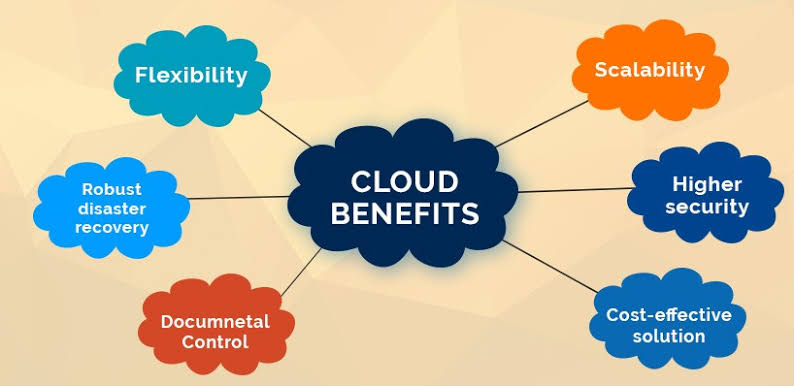
In the era of digital transformation, cloud-based call recording solutions have become an essential tool for businesses of all sizes. Whether you’re managing a sales team, a customer support center, or compliance-sensitive industries, the ability to record, store, and analyze phone conversations offers invaluable benefits. Cloud-based systems have revolutionized the way businesses handle call recordings, providing greater flexibility, scalability, and enhanced features compared to traditional on-premise solutions.
In this article, we’ll cover everything you need to know about cloud-based call recording solutions, from how they work to their advantages, key features, and factors to consider when choosing a provider.

What Are Cloud-Based Call Recording Solutions?
Cloud-based call recording solutions allow businesses to record phone calls over a VoIP (Voice over Internet Protocol) or traditional telephony system and store those recordings in the cloud. Instead of relying on physical servers or local infrastructure, these recordings are securely stored on remote servers managed by third-party providers. Authorized users can access, retrieve, and manage these recordings from any location with an internet connection.
Cloud-based call recording is typically part of a larger communication suite, integrating with CRM systems, customer service platforms, or contact center software, offering a seamless way to analyze and manage customer interactions.
Key Features of Cloud-Based Call Recording Solutions
When considering cloud-based call recording, it’s essential to understand the key features that make it a powerful tool for business communication and analysis:
- Automatic Call Recording: Automatically record all inbound and outbound calls, ensuring that no conversation is missed.
- On-Demand Recording: Some systems allow users to manually initiate call recording only when necessary, offering more control over what’s recorded.
- Secure Storage and Encryption: Recordings are encrypted and stored securely in the cloud to meet compliance regulations and protect sensitive data.
- Scalable Storage: Cloud solutions provide virtually unlimited storage space, allowing businesses to store thousands of recordings without investing in additional hardware.
- Access from Anywhere: Since the recordings are stored in the cloud, authorized personnel can access, listen to, and manage calls from any device with internet access.
- Call Tagging and Notes: Some systems allow users to tag calls with specific keywords or add notes, making it easier to search and retrieve specific recordings.
- Integration with CRM and Analytics Tools: Cloud-based call recording systems often integrate with CRM software, enabling businesses to link call data with customer records for more comprehensive analytics.
- Compliance Tools: Cloud call recording systems offer features to help businesses comply with regulations like GDPR, HIPAA, and PCI DSS, ensuring that recordings are stored and handled in accordance with legal requirements.
- Advanced Analytics: With AI and machine learning integrations, businesses can automatically analyze call content for sentiment analysis, keyword tracking, and performance metrics.
Advantages of Cloud-Based Call Recording Solutions

Cloud-based call recording solutions offer a variety of benefits over traditional on-premise systems. Here’s why many businesses are adopting cloud-based solutions:
1. Cost Efficiency
One of the primary advantages of cloud-based call recording is its cost-effectiveness. Traditional on-premise solutions require significant upfront investments in hardware, software, and IT infrastructure. With cloud-based systems, you typically pay a subscription fee, avoiding costly hardware installations and maintenance.
2. Scalability
Cloud-based systems allow businesses to scale up or down as needed. Whether you’re a small business with a few employees or a large enterprise handling thousands of calls per day, cloud recording solutions can be customized to your needs without overhauling your infrastructure.
3. Remote Accessibility
In an increasingly remote and distributed workforce, the ability to access call recordings from any location is invaluable. Cloud-based systems provide users with the flexibility to manage calls from anywhere, enabling team members to retrieve recordings for quality assurance, training, or compliance purposes, regardless of their physical location.
4. Enhanced Security
Cloud-based call recording solutions often provide more robust security measures than on-premise systems. Recordings are encrypted both in transit and at rest, ensuring that sensitive data is protected from unauthorized access. Providers typically offer multi-factor authentication, audit logs, and other security features to help meet compliance regulations.
5. Automatic Updates and Maintenance
Cloud providers handle all system maintenance and updates, ensuring that businesses always have access to the latest features and security protocols without needing in-house IT support.
6. Improved Collaboration and Training
With cloud-based solutions, teams can easily share recorded calls for coaching, training, and performance reviews. Managers can listen to recordings to evaluate customer service quality, sales tactics, and areas for improvement, fostering a culture of continuous learning.
Use Cases for Cloud-Based Call Recording
1. Sales Teams
For sales teams, recording calls allows for better tracking of conversations with leads and clients. It provides valuable insights into successful sales strategies, identifies areas for improvement, and helps new team members learn from high-performing sales reps. Recordings can also be used to address disputes or confirm details of agreements made during calls.
2. Customer Service and Support
Customer service teams benefit from cloud call recording by using recordings for quality assurance, agent training, and to resolve customer disputes. Analyzing recorded calls also helps businesses understand customer pain points, enabling them to improve service and product offerings.
3. Compliance-Heavy Industries
Industries such as healthcare, finance, and legal services often require call recording to comply with regulations. Cloud-based solutions provide the tools needed to store and manage sensitive data securely while maintaining compliance with industry standards like HIPAA, GDPR, and PCI DSS.
Factors to Consider When Choosing a Cloud-Based Call Recording Solution
When selecting a cloud-based call recording system for your business, it’s important to consider the following factors:
1. Compliance Requirements
Ensure that the solution meets your industry’s regulatory compliance needs, whether it’s HIPAA, GDPR, or PCI DSS. Your call recording provider should offer encryption, secure access controls, and regular audits to keep data safe and compliant.
2. Ease of Use
A user-friendly interface is essential for seamless integration into your business processes. Look for a solution that offers intuitive call management, easy search functionality, and simple reporting tools.
3. Integration Capabilities
Choose a platform that integrates with your existing CRM, VoIP, or communication tools. Integrating your call recording system with your CRM allows for better tracking of customer interactions and improved workflow efficiency.
4. Cost Structure
Evaluate the pricing models of different solutions. Some providers offer a per-user pricing model, while others may charge based on storage capacity or the number of recorded minutes. Choose a solution that fits your budget without compromising on features.
5. Storage and Retention Policies
Determine how long you need to retain call recordings and ensure that the provider can meet your storage needs. Some industries have strict retention policies, so it’s crucial to understand the storage limits and retention policies of the service.
6. Support and Maintenance
Consider the level of customer support and maintenance offered by the provider. Responsive support and regular system updates are essential for a smooth, uninterrupted experience.
Conclusion
Cloud-based call recording solutions offer a flexible, secure, and scalable way for businesses to manage their phone interactions. Whether for sales, customer service, or compliance purposes, these tools provide businesses with the insights needed to improve performance and maintain regulatory standards. By understanding the key features and advantages of cloud-based call recording, businesses can make informed decisions to enhance their operations and achieve long-term success.
Investing in the right cloud-based call recording solution will not only streamline communication management but also provide valuable data to improve your overall business performance.
